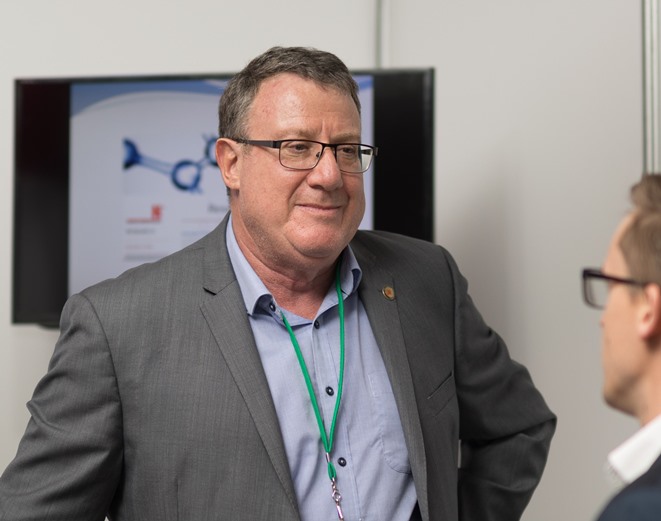Gavin Finkelstein is President of Haemophilia Foundation Australia (HFA) and Haemophilia Foundation Western Australia (HFWA). He has severe haemophilia A. He talked to HFA about living with hepatitis C, treatment and being cured. Our thanks to Gavin for sharing his personal story.

For Gavin, growing up with severe haemophilia had meant living with joint bleeds. His generation became adults before the arrival of prophylaxis treatment to prevent bleeds and Gavin had relied on plasma-derived clotting factor concentrates to manage his bleeding episodes whenever they occurred. The regular bleeds resulted in arthritis and other joint and muscle damage.
‘As they say, pain was my constant companion, but not my friend.’
What he didn’t realise at the time was that another unfriendly traveller had also hitched a ride on his treatment products – hepatitis C virus, which had infected blood products like clotting factor concentrates through blood donations. By 1993 Australia had introduced new safety measures to prevent transmission of hepatitis C in blood products, but in the years before then Gavin had already been exposed to hepatitis C through his treatments many times.
Some years earlier Gavin had been told he had non-A non-B hepatitis – the name for hepatitis C before there was a test – but little was known about it at that stage. When his diagnosis with hepatitis C was confirmed in 1993, it had a very different impact on him.
‘At first I freaked out,’ he said. ‘After living through the HIV epidemic, I thought I was going to die. I was very worried about transmission and passing it on to others. I broke off my relationship and was fearful about going into other relationships. It had a very negative effect on my motivation and my career.’
Early hepatitis C treatment with interferon injections and ribavirin tablets was prolonged and arduous, with difficult side-effects.
‘I had 72 weeks of treatment in 2001-2, which was horrific. I was working the whole time, but it turned my mind to mush. I was forgetful, I was grumpy, I had no energy. It affected my home life as well as my work. Then I relapsed 6 weeks after the treatment finished, which was pretty demoralising.’
With the ongoing impact of hepatitis C symptoms – fatigue, brain fog, lack of energy and motivation – and his increasing arthritis and joint problems with haemophilia, Gavin took early retirement from his job in the public service but continued his volunteer roles with HFWA and HFA.
In 2009 he tried the pegylated interferon and ribavirin treatment again, but his treatment was stopped after 6 weeks when tests showed it wasn’t working.
In 2016 the new direct acting antiviral (DAA) treatments for hepatitis C became available in Australia. They were described as ‘revolutionary’ – and in Gavin’s opinion, lived up to their promise.
‘I had one of the new treatments, Harvoni, and it was a doddle. One tablet a day for 12 weeks and minimal side-effects. And I was cured – it was fantastic. It was the best thing I ever did. Now I feel fine and my liver test results are good too.’
Checking liver test results to make sure his liver had recovered was an important step. This testing took place as a standard requirement when Gavin joined a clinical trial for a new haemophilia treatment, but he encouraged others to ask about testing if they didn’t know what their liver test results were after being cured.
‘Don’t wait’ was the message he had for others considering treatment for hepatitis C.
‘Don’t even think about it. Go for it – get it done. These new treatments have such positive results and there is hardly any impact on your life to undergo the course of treatment. There are several different treatments, so your doctor will be able to find one that suits your individual health and lifestyle.
‘If you are worried about having hep C treatment, ask your haemophilia team or your hepatitis clinic to put you in touch with someone who has had the new therapies so they can have a chat with you about what it’s like. These days you don’t need to think about the implications for your work or home life because it’s so easy to take and there are hardly any side-effects. And when you are cured it puts you in good stead to deal with the rest of your life with haemophilia.’
Haemophilia Foundation Australia acknowledges the Traditional Owners and Custodians of Country throughout Australia, the land, waters and community where we walk, live, meet and work. We pay our respects to Elders past and present and extend that respect to all Aboriginal and Torres Strait Islander peoples.
Sign up for the latest news, events and our free National Haemophilia magazine